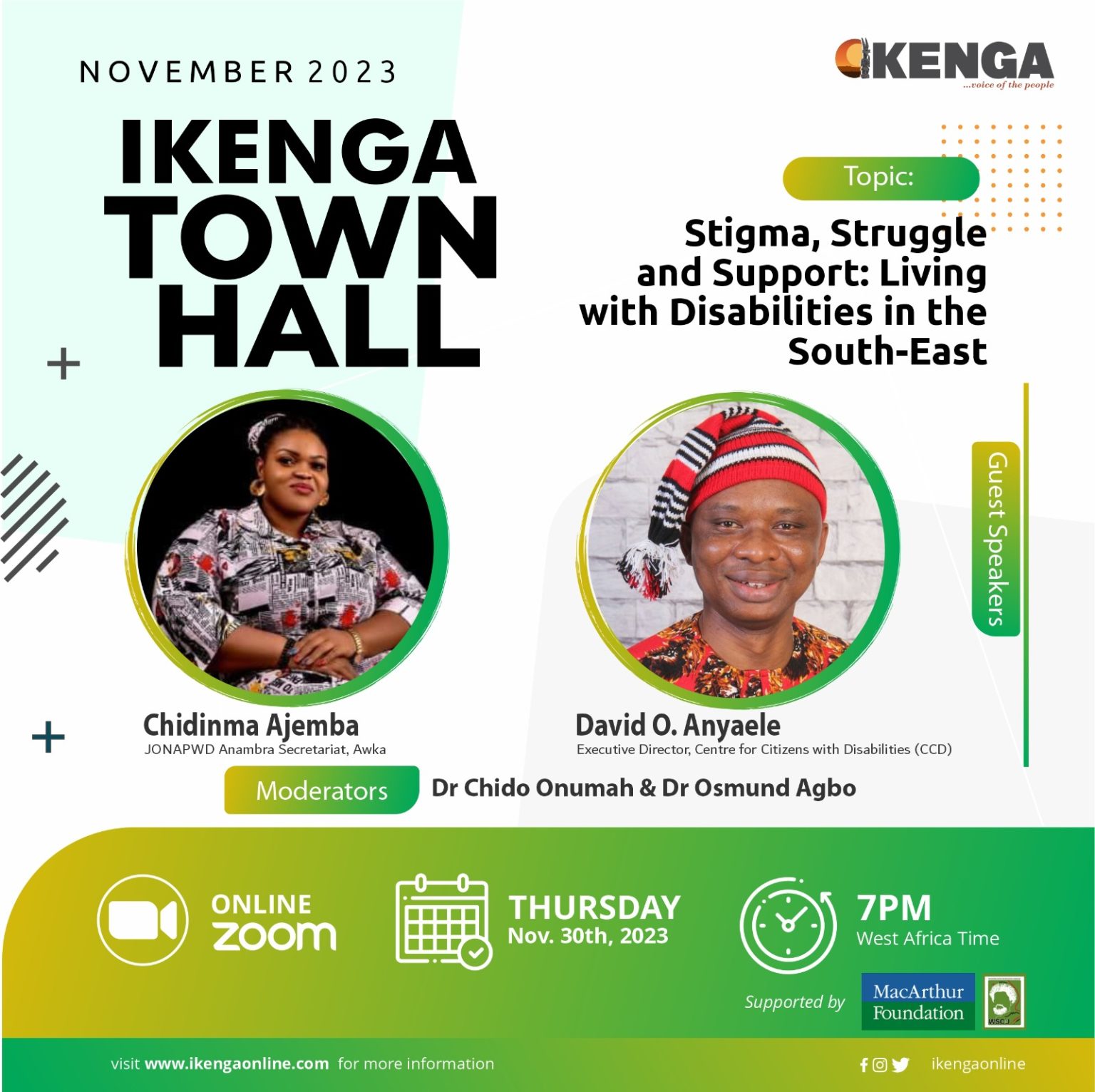…Decry lack of access to public buildings
Stephen Ukandu, Umuahia
Persons With Disabilities (PWDs), have advocated deployment of sign language interpreters to hospitals in the South-East to assist them in getting adequate medical attention.
They also called for installation of facilities to make public buildings easily accessible to PWDs.
The advocacy was made during Thursday’s monthly town-hall meeting of Ikengaonline themed, “Stigma, Struggles, and Support: Living with Disability in the South East.”
A Journalist and one of the resource persons at the meeting, Chidimma Ajemba, said that the absence of sign language interpreters in South-East hospitals had worsened the fate of PWDs especially the deaf and dumb seeking medical attention at such facilities.
She also regretted that most public buildings in the zone were not designed in a way they could easily be accessed by PWDs, describing it as a gross marginalisation against them.
“One of the primary challenges facing PWDs in the South-East of Nigeria is the lack of proper infrastructure and accessibility.
“Many public spaces, including buildings, transportation systems, and recreational facilities, are not designed to accommodate people with disabilities. This lack of accessibility makes it difficult for PWDs to move around independently and participate in various activities, leading to social isolation and limited access to essential services.
“Many healthcare facilities lack the necessary accommodations and services to meet the specific healthcare needs of people with disabilities. This can lead to inadequate medical care and limited access to essential healthcare services.
“Across the five states in the South-East, sign language interpreters are not found in the hospitals and one might need to wonder how deaf women and men access these healthcare services.
“Across the five states in the eastern geo-political zone, most public buildings are not accessible even with the existence of disability rights laws in such states,” she agonised.
She also decried lack of equal opportunities for PWDs in the education sector, alleging that they are often neglected or marginalised.
“Education is another area where PWDs face significant struggles in the South-East of Nigeria. While there have been efforts to promote inclusive education, many schools and educational institutions are still not equipped to support the diverse needs of students with disabilities. Majority of us went to special schools very far from home because schools within were not accessible.
“Unfortunately, some of these schools are in bad shape because of lack of maintenance. A visit to some special schools at Orji Rivers, etc will give us an understanding of the negligence.
“This lack of support often leads to exclusion from education, limiting the opportunities for PWDs to acquire valuable skills and knowledge.”
She also identified lack of access to information as another major barrier to PWDs in the zone.
“Many PWDs face challenges in accessing information in formats that are accessible to them. These include materials being provided solely in printed text, which may not be accessible to individuals with visual impairments or certain learning disabilities. Additionally, digital content may not be designed with compatibility for screen readers or other assistive technologies.”
Her co-resource person and the Founder, Centre for Citizens with Disabilities, CCD, Mr David Anyaele, decried the endemic marginalisation against PWDs in employment opportunities.
He regretted that job opportunities for PWDs in the zone were limited, and called for a change of attitude towards the group.
Arguing that disability could be the lot of any person at any time, Anyaele who is also the Special Assistant to Governor Alex Otti of Abia State on PWDs, appealed to members of the public to give PWDs a sense of belonging in the scheme of things.
Anyaele further advocated support for PWDs willing to pursue a career in sports.
The Disability Activist who recalled with nostalgia how he was denied assistance by the Abia State Government in 1999 when his both arms were chopped off by rebels in Sierra Leone, solicited support for PWDs to help them overcome trauma.
He noted that a lot of them suffer depression, rejection and stigmatisation, and need constant encouragement and empathy.

